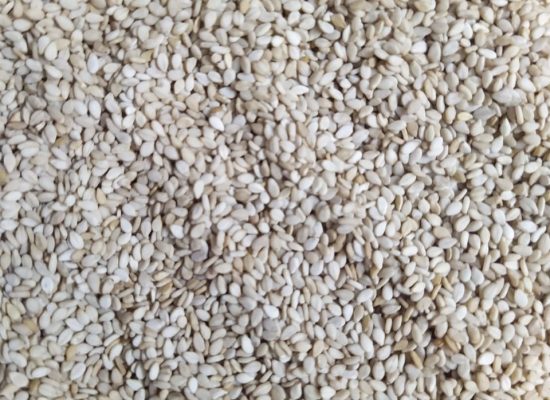Here are some health benefits of Sesame Seeds
Sesame seeds, small yet mighty, are packed with a plethora of health benefits, making them a great addition to various diets. Here are some key health benefits of sesame seeds:
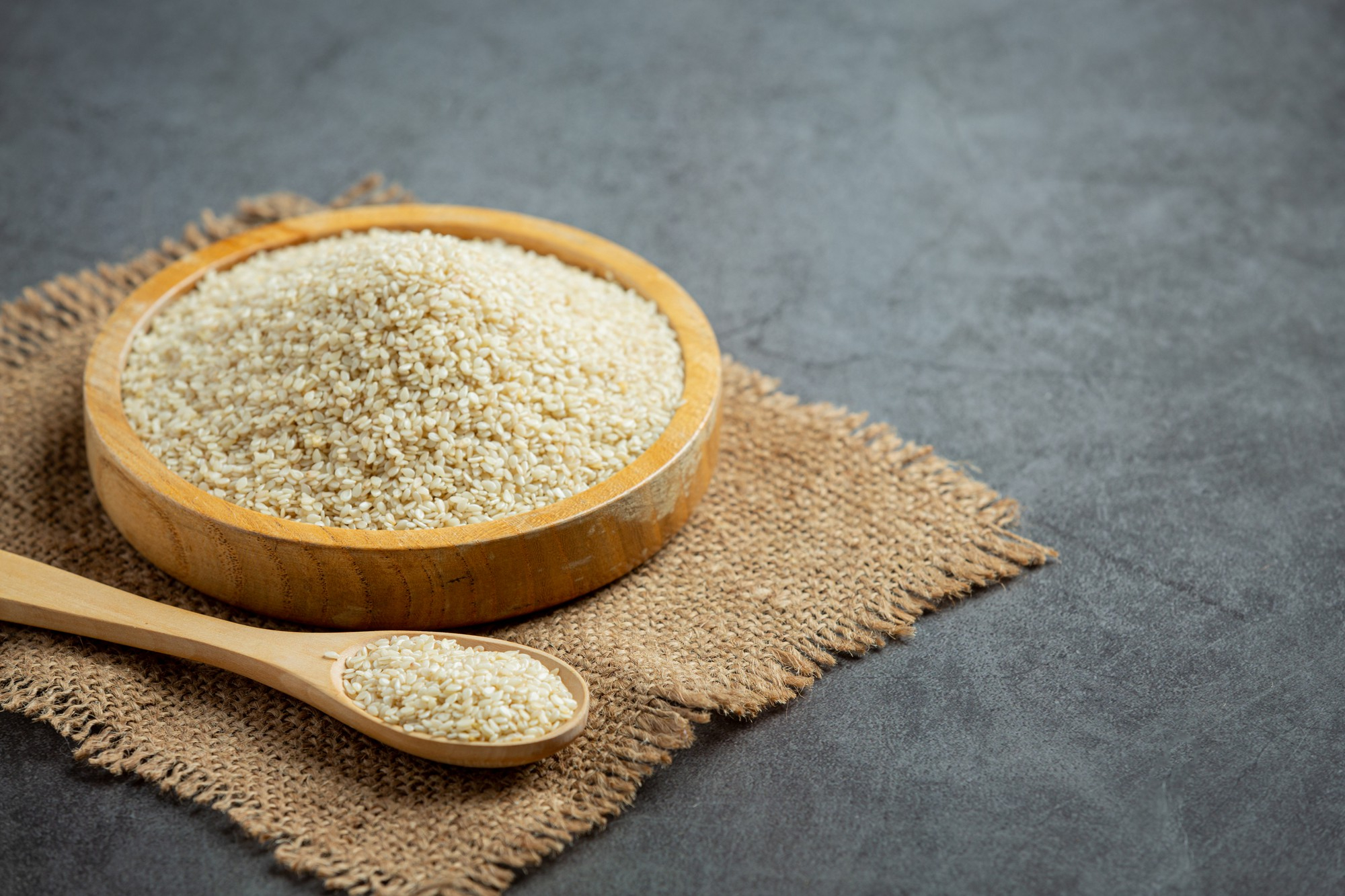
Sesame seeds, small yet mighty, are packed with a plethora of health benefits, making them a great addition to various diets. Here are some key health benefits of sesame seeds:
Nutrient-Rich: Sesame seeds are highly nutritious, containing a good amount of protein, fiber, B vitamins, and minerals such as magnesium, calcium, phosphorus, and iron. This rich nutrient profile supports overall health, including bone health, blood formation, and energy metabolism.
Healthy Fats: They are a good source of healthy fats, including polyunsaturated fatty acids and omega-6. These fats are important for heart health and maintaining healthy cholesterol levels.
Antioxidant Properties: Sesame seeds contain antioxidants like sesamol, sesamin, and sesamolin. Antioxidants help in fighting oxidative stress, which is linked to various chronic diseases including cancer, heart disease, and diabetes.
Supports Heart Health: The seeds can help in lowering bad cholesterol (LDL) and triglycerides, which are risk factors for heart disease. The presence of lignans, which have cholesterol-lowering properties, and the high content of vitamin E, an antioxidant, contribute to cardiovascular health.
May Improve Blood Pressure: Some studies suggest that sesame seeds can help in lowering blood pressure, thanks to their magnesium content and other natural compounds that have vasodilative properties.
Bone Health: High in calcium and zinc, sesame seeds can contribute to bone density and overall bone health. These minerals are crucial for bone formation and maintenance, making sesame seeds beneficial, especially for people at risk of osteoporosis.
Anti-inflammatory: Chronic inflammation is a root cause of many diseases, and sesame seeds, with their anti-inflammatory properties, can help in reducing inflammation. This is largely due to the presence of fatty acids and antioxidant compounds.
Digestive Health: Being rich in fiber, sesame seeds can help in promoting a healthy digestive system. Fiber aids in bowel movement, thereby preventing constipation and supporting gut health.
May Help Control Blood Sugar: Sesame seeds, particularly black sesame seeds, have been found to have potential in managing blood sugar levels, making them beneficial for people with diabetes. This effect is attributed to the high content of healthy fats and fiber, which can help in moderating blood sugar levels.
Skin and Hair Health: The zinc, antioxidants, and fatty acids in sesame seeds can also contribute to healthy skin and hair. They can help in nourishing the skin, promoting hair growth, and providing a youthful glow.
Incorporating sesame seeds into your diet is easy. They can be added to salads, baked goods, smoothies, and Asian dishes for a nutty flavor and a nutritional boost. However, as with any food, moderation is key, especially for individuals who may have allergies to sesame seeds.
White sesame seeds are one of the many varieties of sesame seeds, which are tiny, oil-rich seeds derived from the Sesamum indicum plant. The white variety is among the most common and widely used, particularly in Western and Middle Eastern cuisines. These seeds are known for their delicate, nutty flavor, which can enhance the taste of numerous dishes, from breads and bagels to salads and sweets.
Nutritional Profile:
Like other sesame seeds, the white variety is nutritionally rich. They are a good source of healthy fats, protein, dietary fiber, vitamins (such as B vitamins), and minerals (including calcium, magnesium, iron, and zinc). This makes them beneficial for heart health, bone density, digestion, and more.
Chemical Composition:
Oil content: 46- 48 % min.
Moisture. : 6% max.
FFA. : 1-2 % max.
Impurity. : 1 % max.
Season. : all the time current one
Packing. : in pp bags of 50 KGS net
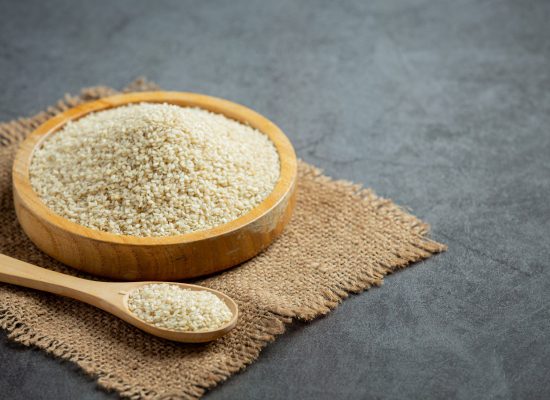
Reddish sesame seeds are a less common variety of sesame seeds, known for their distinctive reddish-brown hue. Like their white and black counterparts, reddish sesame seeds come from the Sesamum indicum plant but differ in color due to genetic variations and possibly different cultivation methods or conditions. These seeds share many of the same nutritional benefits and culinary uses as other sesame seeds but with a few unique characteristics.
Nutritional Profile:
Like other sesame seeds, the reddish variety is rich in healthy fats, protein, fiber, vitamins, and minerals such as calcium, magnesium, and zinc. These nutrients contribute to heart health, bone density, digestive health, and more
Chemical Composition:
Oil content : 50- 52 % min.
Moisture. : 6 % max.
FFA. : 1- 2 max.
Impurities. : %1% max.
Packing in pp bags of 50 KGS Crop. All the time current season
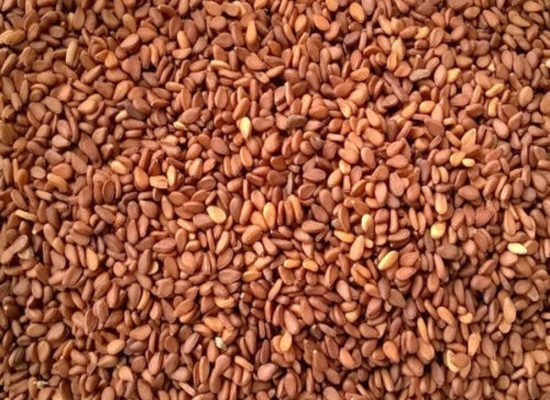
Hulled sesame seeds are sesame seeds that have had their outer shell, or hull, removed. This process reveals the inner, white part of the seed, which is softer and has a more subtle flavor compared to the unhulled or whole sesame seed. Hulled sesame seeds are the type most commonly found in grocery stores and used in a variety of culinary applications.
Nutritional Profile:
While hulled sesame seeds retain many of the nutritional benefits of sesame seeds, such as being a good source of healthy fats, protein, B vitamins, minerals like calcium, magnesium, and zinc, the process of hulling can reduce their fiber content and some minerals that are present in the hull.
Chemical Composition:
Purity: 99.98%
Impurity: 0.02%
Moisture. : 5% max.
FFA. : 1-2 % max.
Impurity. : 1 % max.
Packing. : Packed 25 Kg Paper Bags
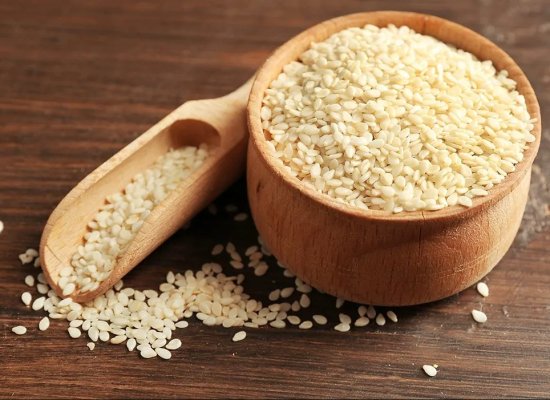
Mixed sesame seeds refer to a blend of sesame seeds of different colors, typically including white, black, and sometimes reddish or brown sesame seeds. This mix combines the unique flavors and nutritional benefits of each variety, offering a visually appealing and healthful addition to many dishes. Mixed sesame seeds are used similarly to single-color sesame seeds but provide a more complex flavor profile and a diverse range of nutrients.
Nutritional Profile:
Mixed sesame seeds combine the nutritional benefits of all included varieties, offering a rich source of healthy fats, protein, dietary fiber, vitamins (such as B vitamins), and minerals (including calcium, magnesium, iron, and zinc). This blend makes for a nutritionally potent topping or ingredient that can contribute to heart health, bone density, digestive health, and more.
Macronutrients:
Fats: Approximately 50-60% of the seed’s weight, predominantly unsaturated fatty acids.
Proteins: Around 15-20%, a significant portion for a seed.
Carbohydrates: Roughly 10-20%, primarily dietary fiber and a small amount of sugars.
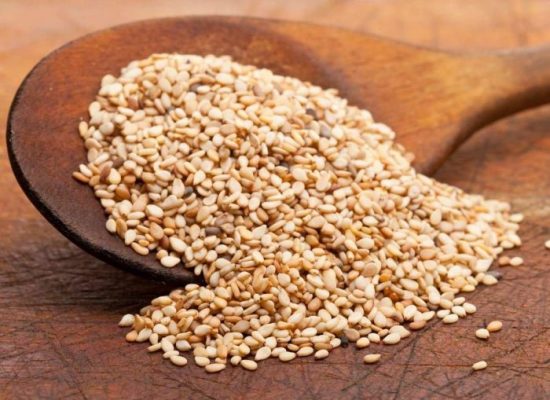
Commercial sesame seeds refer to sesame seeds that are cultivated, processed, and packaged for sale in the market. These seeds are produced on a large scale to meet the demand in various industries, including food, cosmetics, and pharmaceuticals. Commercial sesame seeds come in several varieties, including white, black, brown, and red sesame seeds, each with its specific uses and market demand. The term “commercial” distinguishes these seeds from those that might be grown on a smaller scale or for personal use.
Nutritional Profile:
While hulled sesame seeds retain many of the nutritional benefits of sesame seeds, such as being a good source of healthy fats, protein, B vitamins, minerals like calcium, magnesium, and zinc, the process of hulling can reduce their fiber content and some minerals that are present in the hull.
Chemical Composition:
Purity: 99.98%
Impurity: 0.02%
Moisture. : 5% max.
FFA. : 1-2 % max.
Impurity. : 1 % max.
Packing. : Packed 25 Kg Paper Bags
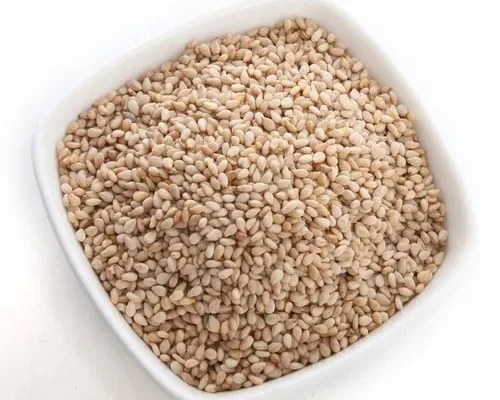
Gadarif sesame seeds refer to sesame seeds that are grown in the Gadarif (also spelled Gedaref or Al Qadarif) region of Sudan. This area is one of the leading sesame-producing regions in Sudan and is renowned for its high-quality sesame seeds. Sudan itself is one of the world’s largest producers and exporters of sesame seeds, and the seeds from the Gadarif region are especially prized in international markets for their purity, flavor, and high oil content.
Nutritional Profile:
Gadarif sesame seeds, like that of other sesame seeds, is rich and beneficial for health. While specific nutritional values can vary slightly based on factors such as cultivation practices and seed variety, sesame seeds generally offer a dense concentration of nutrients, including healthy fats, protein, vitamins, minerals, and antioxidants.
Macronutrients:
Calories: Approximately 573 calories
Protein: About 17.7 grams
Fat: Around 49.7 grams, predominantly healthy unsaturated fats (including linoleic acid and oleic acid)
Carbohydrates: Roughly 23.4 grams
Dietary Fiber: About 11.8 grams
